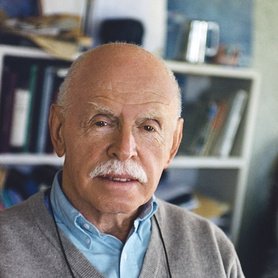- Experts
- Securing Ukraine
-
Topics
FeaturedInternational efforts, such as the Paris Agreement, aim to reduce greenhouse gas emissions. But experts say countries aren’t doing enough to limit dangerous global warming.
-
Regions
FeaturedIntroduction Throughout its decades of independence, Myanmar has struggled with military rule, civil war, poor governance, and widespread poverty. A military coup in February 2021 dashed hopes for…
Backgrounder by Lindsay Maizland January 31, 2022
-
Explainers
FeaturedDuring the 2020 presidential campaign, Joe Biden promised that his administration would make a “historic effort” to reduce long-running racial inequities in health. Tobacco use—the leading cause of p…
Interactive by Olivia Angelino, Thomas J. Bollyky, Elle Ruggiero and Isabella Turilli February 1, 2023 Global Health Program
-
Research & Analysis
FeaturedCFR’s RealEcon team traveled across the country to ask Americans what they think of trade, aid, and other international economic policies.
Report by Matthew P. Goodman and Allison J. Smith March 25, 2025 RealEcon
-
Communities
Featured
Webinar with Carolyn Kissane and Irina A. Faskianos April 12, 2023
-
Events
FeaturedIn recent years, China, Russia, Iran, and North Korea have deepened their cooperation, raising concerns about an emerging “Axis of Autocracies” challenging U.S. global leadership. From military support and weapons transfers to economic backing, these alliances are reshaping the geopolitical landscape. This symposium will examine the extent of their collaboration, its global implications, and how the United States should respond to the threats it poses to U.S. national security. Click here to view the full agenda. This Hauser Symposium is made possible by the generous support of the Hauser Foundation. If you wish to attend virtually, log-in information and instructions on how to participate during the question and answer portion will be provided the evening before the event to those who register. Please note the audio, video, and transcript of this hybrid event will be posted on the CFR website.
Virtual Event with Christopher S. Chivvis, Heather Conley, Ivo H. Daalder, Jennifer E. Kavanagh, Tanvi Madan, Ebenezer Obadare, James M. Lindsay, Suzanne Nossel and Laura Trevelyan March 27, 2025
- Related Sites
- More
Politics and Government
Civil Society
-
Prince of the SahelBeneath the ideological bluster, Burkina Faso’s Ibrahim Traoré is just the latest in a long line of African martial impostors.
-
-
Addressing Entities of Particular Concern: Non-State Actors and Egregious Violations of Religious FreedomEbenezer Obadare's testimony before the United States Committee on International Religious Freedom addresses how Boko Haram, ISWAP, and other violent non-state actors commit religious freedom violations across Central Africa and the Sahel, and what U.S. policy response should be.
Experts in this Topic
-
Fear and Loathing in the SahelAcross the region, the promise of a better life under the military is fast turning into a nightmare.
-
-
The Unmaking of an EliteThe great tragedy of Nigerian tertiary education is the debasement of its professoriate.
-
The Truth About Africa's "Debt Crisis"Africa has a governance crisis, not a debt crisis.
-
Kagame's CrusadeThe Rwandan President’s attempt to regulate faith-based organizations raises more questions than answers.
-
Uncivil SocietyThe standard state versus society framework for analyzing African politics is no longer fit for purpose.
-
Zimbabwe’s Pre-SADC CrackdownAs SADC leaders gather in Harare for their annual summit, Zimbabwe’s government rounds up perceived “enemies of the state.”
-
A Loud SilencePentecostal leaders’ avoidance of the #EndBadGovernance protests in Nigeria speaks volumes about the protests’ ethnoreligious undercurrents.
-
The Myth of the ‘Leaderless’ African ProtestRather than being leaderless, contemporary African protests are being steered by a leadership no one saw coming.
-
A False DilemmaBad governance, not dissent, is the real threat to law and order in Nigeria.
-
Uganda’s Inventive Protest CultureIn the face of growing repression, Ugandans continue to find new and creative ways to combat the entrenched system of state capture.
-
Who Needs an Emir?The ongoing Emirship tussle in Nigeria begs broader questions about the place of traditional rulership in Africa’s emerging democracies.
 Online Store
Online Store



